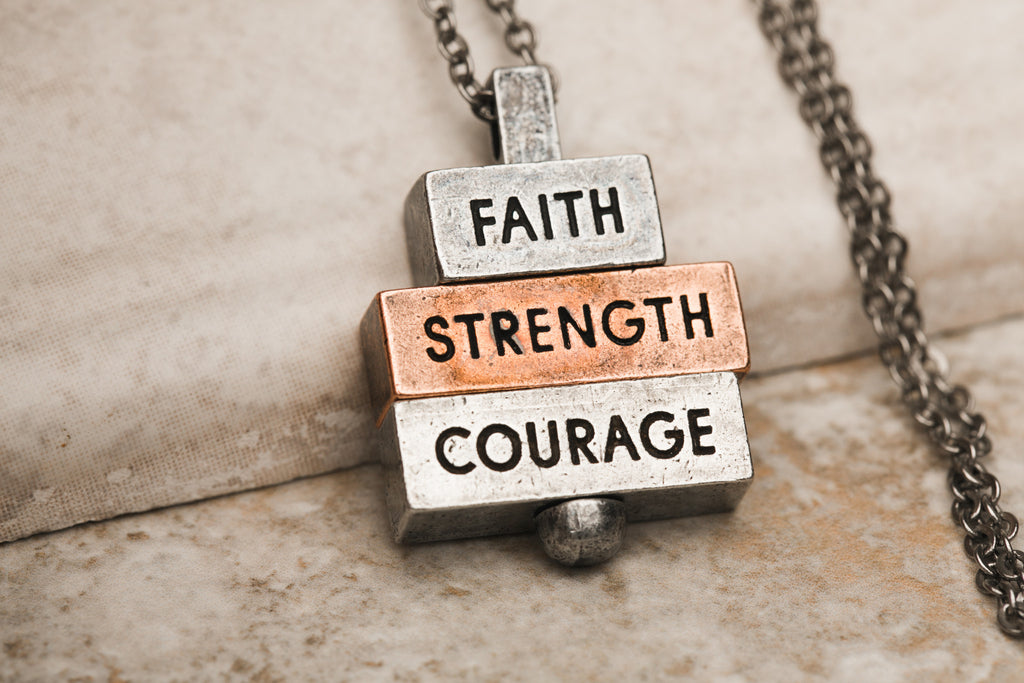In the intricate tapestry of life, courage, faith, and emotional strength act as the triadic threads that weave a coherent narrative of resilience and purpose. These elements, celebrated within the Bahá’í teachings, serve as foundational pillars upon which individuals can erect their personal and communal edifices of spiritual fulfillment and social responsibility. Each concept serves not only as an individual anchor but also as a collective beacon guiding humanity toward harmonious coexistence.
Courage: The Silent Battle Cry
Courage is often misconceived as a loud proclamation or grand gesture, but within the Bahá’í paradigm, it embodies a profound inner fortitude. It is the quiet willingness to confront the uncertainties of existence, to face the tempest of trials with unyielding resolve. In the realm of spiritual development, courage manifests as the ability to transcend fear, particularly the fear of judgment, ostracism, or even failure. It is the willingness to champion justice and equity, even in the face of adversity.
Consider the metaphor of the lotus flower, which emerges from muddy waters, rising triumphantly above the surface. This imagery parallels the essence of courage in human life: it invites individuals to embrace their trials and tribulations as necessary preconditions for personal and spiritual growth. The Bahá’í teachings encourage adherents to seek courage not only in individual pursuits but also within the context of social obligations, urging action against injustice and inequality.
Pursuing courage is not merely an individual endeavor. It cascades into the community, fostering a spirit of collective bravery. When individuals rally together, emboldened by shared convictions, they catalyze a movement that can effectuate monumental change. The Bahá’í perspective on courage extends beyond the battlefield of ego; it invites a robust engagement with the world, where courage transforms into a communal duty.
Faith: The Illuminating Compass
Faith, in the Bahá’í context, transcends mere belief; it is a dynamic force that provides direction amidst the fog of uncertainty. It acts as an illuminating compass, guiding individuals through tumultuous waters toward shores of understanding and unity. This faith is not bound by dogma or rigid doctrines; rather, it is an evolutionary understanding of spiritual truth that adapts over time, reflecting a deep-seated yearning for connection with the divine.
As one navigates the complexities of existence, faith becomes an unfailing testament to resilience. The Bahá’í teachings espouse that true faith fosters an unwavering trust in the benevolence of the Creator and the inherent goodness of humanity. This faith is akin to a lighthouse; even in the darkest night, it offers solace, hope, and a sense of belonging, shining brightly in the hearts of those who choose to believe.
Moreover, this faith is intricately linked to the pursuit of knowledge and understanding. The Bahá’í teachings advocate for the pursuit of truth through investigation and inquiry, fostering a spirit of intellectual curiosity that enhances personal faith. By grounding faith in reasoned understanding, adherents are encouraged to forge a deeper connection with their beliefs, transforming faith into an actionable force that instills purpose.
Emotional Strength: The Resilient Foundation
Emotional strength is the unyielding foundation upon which courage and faith stand. It is the embodiment of one’s ability to navigate the chaotic maze of human experiences—joy, sorrow, triumph, and defeat—with equanimity and grace. Within the Bahá’í framework, emotional strength is not merely a trait but a cultivated practice, requiring intentionality and reflection.
The metaphor of a well-rooted tree serves as an apt illustration of emotional strength. Just as a tree draws nourishment from its roots, individuals can cultivate emotional resilience through introspection, self-knowledge, and community support. This foundation enables one to weather the storms of life, emerging with renewed vigor and purpose.
Emotional strength also plays a pivotal role in fostering healthy relationships, promoting forgiveness and understanding even in challenging circumstances. The Bahá’í teachings underscore the importance of developing attributes such as patience, compassion, and empathy—qualities intricately intertwined with emotional fortitude. By nurturing these attributes, individuals contribute to a more harmonious society, wherein relationships flourish and conflicts are resolved with grace.
The Interplay of Courage, Faith, and Emotional Strength
The interdependence of courage, faith, and emotional strength creates a holistic framework for personal and communal development. Together, they form an intricate system where each element amplifies the others. Courage emboldens the heart to embrace faith; faith illuminates the path toward building emotional resilience, and emotional strength provides the necessary foundation to act upon one’s convictions.
In every facet of life, from individual endeavors to community engagements, the synthesis of these components manifests as a formidable force for good. By embodying courage, anchoring themselves in faith, and cultivating emotional strength, individuals cast aside the shackles of fear and doubt, aligning themselves with a collective vision of a more just and unified world.
Conclusion: The Call to Action
The Bahá’í teachings offer a transformative lens through which to view the vital roles of courage, faith, and emotional strength in human existence. They invite individuals to step beyond the confines of their comfort zones, harnessing the power of these attributes to build meaningful lives and communities grounded in justice, compassion, and unity. As the world continues to grapple with complexities, the call to embody these principles has never been more urgent. Each person holds within them the potential to contribute to a luminous future, where courage is celebrated, faith is lived, and emotional strength is revered.
